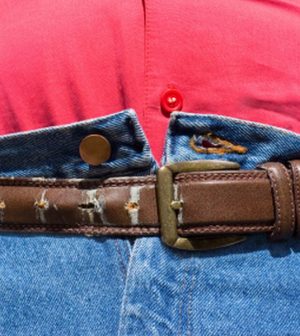- Could Your Grocery Store Meat Be Causing Recurring UTIs?
- Are You Making This Expensive Thermostat Error This Winter?
- Recognizing the Signs of Hypothyroidism
- 10 Strategies to Overcome Insomnia
- Could Artificial Sweeteners Be Aging the Brain Faster?
- Techniques for Soothing Your Nervous System
- Does the Water in Your House Smell Funny? Here’s Why
- Can a Daily Dose of Apple Cider Vinegar Actually Aid Weight Loss?
- 6 Health Beverages That Can Actually Spike Your Blood Sugar
- Treatment Options for Social Anxiety Disorder
Smokers’ Diets Let Them Down, Too

People who smoke already face a greater risk of illnesses and early death, and a new study suggests their diets aren’t doing their health any favors either.
The researchers found that compared to ex-smokers and people who never smoked, tobacco users have diets with a much higher energy density. Smokers consume about 200 more calories a day, despite eating significantly smaller portions.
Energy density measures the calories in a food compared to its volume. A food that is higher in energy density has more calories for smaller amounts of food. A cookie, for example, is more energy dense than a carrot.
Public health guidelines, including the 2015 Dietary Guidelines for Americans, recommend eating foods that are lower in energy density to help prevent obesity. Lower energy density diets also tend to be healthier, with more fruits and vegetables, the researchers noted.
“Along with smoking, poor diet is in the top three modifiable risk factors for cardiovascular disease,” the study authors wrote. “These findings suggest that smoking status is associated with poor diet quality,” they concluded.
The research was led by R. Ross MacLean of Yale University.
For the study, MacLean’s team reviewed data from nearly 5,300 U.S. adults who took part in a nationally representative survey that asked about diet and smoking behaviors.
People who never smoked ate around 1.79 calories for every gram of food. Former smokers consumed about 1.84 calories for every gram eaten. For daily smokers, that number was 2.02 calories per gram, the findings showed.
Registered dietitian Samantha Heller said she doesn’t think smokers are making a conscious decision to eat poorly.
“Smokers are probably unaware that their taste and smell are diminished. They’re unaware how dulled these senses have become, and that can lead to an increase in seeking foods you feel are more flavorful. And, the way foods are formulated — sugar, fat and salt — are very attractive tastes, and they’re energy dense,” Heller explained.
So, should smokers try to eat healthier foods?
“It’s always a good idea to try to improve the quality of your diet, especially by eating more plant-based foods. But, if you’re a smoker, it may be particularly difficult because healthy foods might not taste as good to you,” she said.
Researchers also pointed out that changing your diet when you try to quit smoking can help prevent weight gain.
Patricia Folan, director of the Center for Tobacco Control for Northwell Health in Great Neck, N.Y., said weight gain is a concern for people who are trying to give up tobacco.
“At least 50 percent say fear of weight gain has been one of their obstacles to quitting. We address weight management during our cessation programs, but being able to offer a more targeted diet plan would be helpful, given the info from this study,” Folan said.
Heller said smoking cessation should definitely be the first target. “Quitting smoking is one of the best things you can do for yourself, and you can redirect that intense energy you focused on smoking into healthier eating and exercise,” she suggested.
And, once you quit smoking, Heller said, you’re in for a pleasant surprise — your senses of taste and smell will start to recover. Foods you once found palatable may start to taste too salty or greasy. “Suddenly, you’ll be able to really taste your food,” she said.
The study was published online April 3 in BMC Public Health.
More information
Learn more about giving up smoking at the American Lung Association.
Source: HealthDay
Copyright © 2026 HealthDay. All rights reserved.










